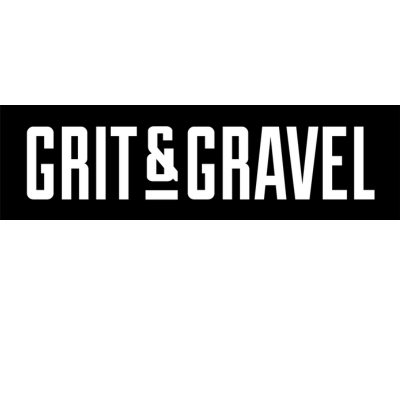125 Years of Service for California Masons—and More to Come!
At the Masonic Homes of California, our Member Spotlight of the Month, a period of rapid growth has the organization poised for a bright future.
A Need for Change
Back in 2018, Gary Charland, the president and CEO of the Masonic Homes of California, packed each member of his board of directors into golf carts and took them on an impromptu tour of the senior community’s campus in the East Bay town of Union City. It wasn’t pretty. “I specifically made sure we hit every bump in the road,” Charland says with a chuckle, and there were plenty to hit. He also pointed out the things that were missing—namely, sidewalks and walkways for pedestrians. On a campus known for its natural beauty, there wasn’t an easy way for residents to enjoy the outdoors, and Charland made sure board members noticed that, too.
Then, he brought them inside, where he pointed out cracked tiles and wasted space – he was unsparing in his tour. Finally, he turned to the challenge of caring for an aging population and what it meant for the Masonic Homes of California for the next 10, 20, or 100 years. In fact, Charland returned to a phrase he’d learned from several past grand masters: “The Masonic Homes is the jewel in the crown of California Freemasonry. Since its founding in 1898, the clinical care, culture, and support services offered through the Masonic Homes have been among the finest in the industry. But all that good work depends on infrastructure. And that needed major upgrades; the jewel needs polishing.”
Efforts Paid Off: A New Masonic Homes of California
Now, as Charland steps down as CEO and the Masonic Homes celebrates its 125th anniversary, the shine has most definitely returned. Charland’s retirement this summer comes on the heels of the completion of a long-gestating capital improvement plan to not only modernize the organization’s two senior community campuses in Union City and Covina (in the San Gabriel Valley east of Los Angeles), but to recalibrate its service offerings for the current and future needs of the membership.
This summer’s double milestone is also an opportunity to reflect on just how much the Masonic Homes of California have evolved under Charland’s decade-plus stewardship. Among the notable changes since he took over have been:
- The opening in 2022 of the Pavilion at the Masonic Homes in Union City and the planned opening this fall of the Covina Health Center, both of which feature 32 beds designed for those requiring skilled nursing or memory-loss care. By providing those services on-campus for the first time, couples living at the Masonic Homes will never need to be separated if one of their health needs require specialized care. Both projects were made possible through a three-year “Let’s Write the Future” fundraising campaign by the California Masonic Foundation.
- The completion of a five-year, $115 million Campus Master Plan in Union City, which included the complete renovation of the northern wing of the Adams Building (independent and assisted living) and Wollenberg Building (assisted living and memory care), the construction of new roads, walking paths, the repaving of the Sedam Plaza, and landscaping throughout the campus. Thanks to the recently completed renovations, the Union City campus has raised its capacity by 52 beds, most of which are dual-licensed for independent or assisted-living. The campus has also increased its share of beds set aside for memory care from just eight to 46 and, systemwide, there’s been a 58 percent increase in capacity.
- The exponential growth of the Masonic Center for Youth and Families, a mental health and wellness service that has grown from serving approximately 150 clients per year in 2015 to more than 1,000 per year, nearly all remotely, during the pandemic. In addition to its work with Masonic families and members of the Masonic youth orders, MCYAF also partners with several school districts and other public agencies to provide services for young people and – thanks to a recent Medicaid approval – now offers mental-health programs to seniors living at the Masonic Homes.
- The founding of the Lodge Outreach Program, beginning in 2011, in which members of California Masonic lodges are trained in the fundamentals of social work to reach out to their membership to help connect them to services available through the Masonic Senior Outreach Services (MSOS) or Masonic Family Outreach Services (MFOS) programs. The Lodge Outreach Program now has representatives in every Masonic district of the state, helping connect hundreds of California Masons and their families with referrals, advice, care management, and in many cases temporary emergency funds.
- The opening in 2020 of a new Shared Housing option for seniors in Covina, open to Masons aged 60 and up and able to live independently. The low-cost cohousing arrangement provides much-needed housing for those on a fixed income.
- The development of the Transitions rehabilitative services program in Union City—the first offering from the Masonic Homes to be open to the general public as a fee-for-service. Transitions offers those recovering from surgery, heart attack, or other serious medical issues with 24-hour skilled nursing in a setting with hotel-style amenities including private bathrooms. In 2022, Transitions was named a top rehab facility by U.S. News and World Report.
- The founding and growth of a first-of-its-kind, five-part Stepping Stones memory care program. Through Stepping Stones, residents at the Masonic Homes have access to memory care programs designed for every step of memory loss—including the very earliest stages—that have been shown to slow the progression of Alzheimer’s and dementia by years.
- The opening in 2011 of the Acacia Creek retirement community in Union City, a market-rate, sister organization of the Masonic Homes offering high-end senior independent-living apartments to the general public.
Under Charland’s leadership, the Masonic Homes has also become a much more visible fixture in the local community. Seniors at the Masonic Homes and Acacia Creek regularly volunteer off-campus, and the campuses are open to the public for yearly events including SummerFest and HarvestFest and a beloved holiday tree-lighting.
Turning the Page: Terry Quigley, the New CEO
Beginning July 1, Terry Quigley, MSW, NHA will begin as chief executive officer and president. Quigley comes to the Masonic Homes with an extensive background managing mission-driven human services organizations and CCRCs, including through Episcopal Communities and Services in Southern California, where she oversaw assisted-living and affordable housing communities serving more than 700 residents. Quigley has also led operations at Shea Family Care and the Cloisters of La Jolla Skilled Nursing Facility in San Diego.
As the Masonic Homes of California celebrates its sesquicentennial and salutes Charland’s decade-plus of service to its mission, it looks to a particularly bright future.
Learn more about the Masonic Homes of California and Acacia Creek Retirement Community online and inquire about membership on the Membership Page on our MCSA website!






















